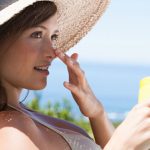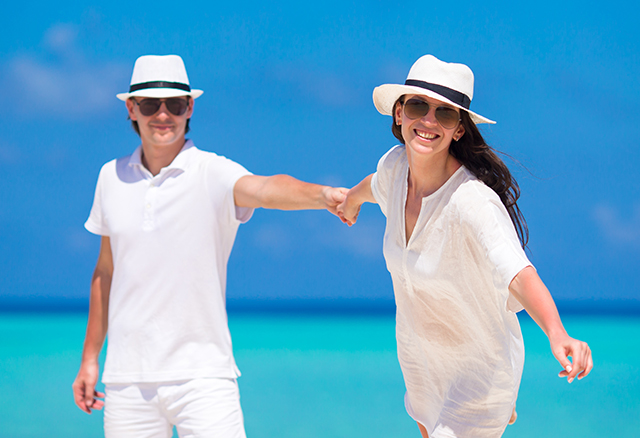We have all heard the mantra of “slip, slop, slap, seek, slide” that our Cancer Council has been promoting and evolving since the 1980’s. But just what is SunSmart behavior really? On a fundamental level? Well, hopefully this little refresher helps to remind and review how we can protect our skin from the sun, and why we should be doing this.
So firstly, why? Why do we have to be so careful in our dealing with the Sun?
Well, the thing about sun light is that it affects our skin in several different ways. The UV radiation causes skin cell damage that can lead to skin cancer, and it also ages our skin cells prematurely, so we end up looking older that we are. Usually not considered a good thing… And the heat effect from the sun light also ages our skin through its effect on the structure of the skin cell membrane, and the important contents of our cells, like mitochondria. Basically, the cells get ‘cooked’ and lose some of its vitality and elasticity, so it becomes stretched and ‘older than its stated age’.
OK, so how can we reduce this impact? Simple, yet complicated, as it requires a shift in our patterns of behavior, and this can be challenging to get ‘fixed’ in our mind. A ‘new way of approaching the sun is needed.
Here are some practical tips that will help achieve this new approach:
- When you must be outside in the sun for work, choose a cover up method (e.g., long-sleeved shirt, hat, long pants, etc.) over a sunscreen method. Why? Sunscreen has a limited period of protection, while clothing prevents the UV from reaching your skin. And when you get out of the sunshine and take the clothing off, the heat stays in the clothing, NOT trapped in your skin (which happens when you absorb the UV rays over a period).
- Avoid recreational activities in the sun between 10 AM and 4 PM, as this is the ‘nasty sunlight’ period. In Queensland, I sometimes feel this is maybe 9 AM to 4 PM given our latitude. And even at those times, apply a nice thick layer of SPF 30 or 50 sunscreen prior to your time in the sun. Your skin will thank you for it later. Years and years later, over, and over.
- Little children, and especially babies should NEVER be in direct sunlight. Why? They are so close to the ground that they collect a lot of reflected sunlight from the surface (remember UV light is a ray, and rays get reflected when they strike a solid surface, even the surface of the water in a pool). And when they go to beach, best to use long-sleeved UV protective (UHF 50) rashies. Did you know that skin grows by ‘cloning’ itself? In short, the skin you have as a child divides and divides as you grow to cover your growing body. And when that young skin was damaged by excessive UV light exposure, you can only make sun damaged skin. And you get burnt much easier as an adult, and your skin ages much faster than someone without that ‘foundational’ skin damage. Kids belong in the shade. For the sake of their skin.
- Apply enough sunscreen. Yes, I know it is slippery and sloppy, and greasy. Remember that it will take some time to be adsorbed, so it will get less sloppy, and when there is not enough applied, there may be gaps in your defense. And it might rub off on your shirt, or towel. And when you do get out in the sun, and heat up, some of the moisteriser in the sunscreen evaporates, leaving you with less. So, apply enough to compensate for all that. This is also why we must reapply, as we perspire (or sweat) some of the good UV protection out of our skin.
Well, that is enough preaching for one day. Enjoy your Summer and remember to see a certified skin cancer specialist at least once a year for a complete skin examination including dermoscopy. Early detection truly saves lives.
References:
















